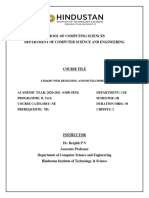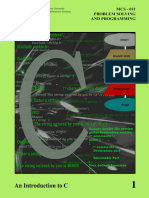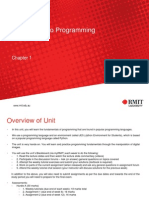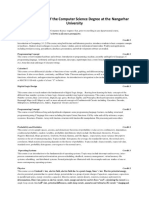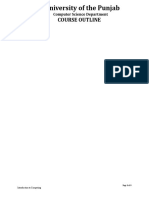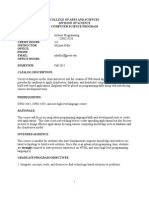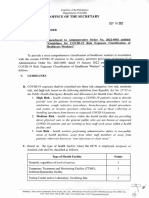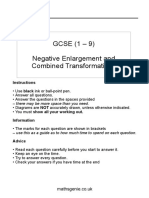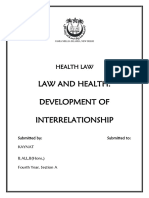0% found this document useful (0 votes)
10 views8 pagesCSC001 Scheme
The document outlines the curriculum for the Introduction to Computer Programming course at Westerfield College, detailing guided learning hours, assessment objectives, and learning outcomes. It covers essential programming concepts, including various programming languages, web development, and cloud computing, with a structured module scheme for the first semester. Assessment consists of coursework and exams, with a grading system ranging from A* to F based on percentage performance.
Uploaded by
opera4jah23Copyright
© © All Rights Reserved
We take content rights seriously. If you suspect this is your content, claim it here.
Available Formats
Download as PDF, TXT or read online on Scribd
0% found this document useful (0 votes)
10 views8 pagesCSC001 Scheme
The document outlines the curriculum for the Introduction to Computer Programming course at Westerfield College, detailing guided learning hours, assessment objectives, and learning outcomes. It covers essential programming concepts, including various programming languages, web development, and cloud computing, with a structured module scheme for the first semester. Assessment consists of coursework and exams, with a grading system ranging from A* to F based on percentage performance.
Uploaded by
opera4jah23Copyright
© © All Rights Reserved
We take content rights seriously. If you suspect this is your content, claim it here.
Available Formats
Download as PDF, TXT or read online on Scribd
/ 8








